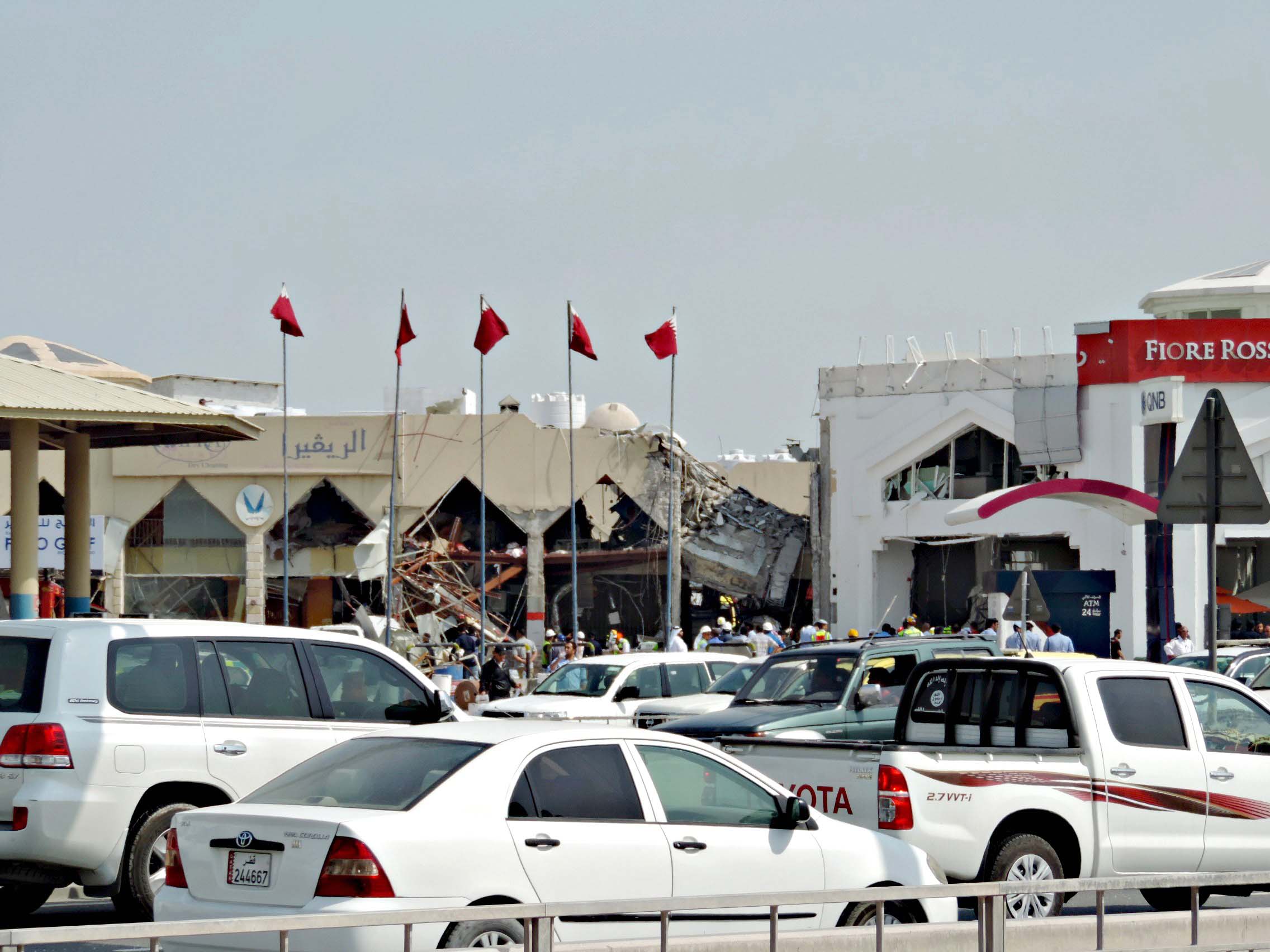
As Qatar works to sort out what happened on Thursday after 11 people died in a gas tank explosion near Landmark Mall, several of the injured are being released from the hospital.
As of Friday afternoon, 26 of the 35 patients received by Hamad Medical Corp. have been discharged.
Speaking to local journalists, HMC spokesman Ali Alkhater said 20 of the injured left the hospital the same day as the blast, and six left yesterday. The remaining nine patients include two children.
The gas tank that exploded sat atop of Istanbul Restaurant, near Landmark Mall. No one was inside the restaurant at the time of the blast, which took place around 10am. But employees and customers of the neighboring Tasty Restaurant, as well as other passersby, were caught in the 50m blast radius.
Many of them died in the accident, and the embassies of the 11 people killed by the explosion are preparing to repatriate the remains of their nationals back to their home countries.
The deceased are:
- Zakaria Padinjare Anakandi (India);
- Pulikkal Palangad Abul Salam (India);
- Riyas Kizhakkemanoli (India);
- Venkateswarlu Thammala (India);
- Sheikh Babu (India);
- Yem Bahadur (Nepal);
- Durga Bahadur (Nepal);
- Thanka Bahadur (Nepal);
- Mann Bahadur (Nepal);
- Romar Faduhilao (Philippines); and
- Charlie de Castro (Philippines)
What might have happened
An investigation is underway into what caused the explosion of the gas tank – a 1,000-liter LPG container that belonged to fuel company Woqod and passed safety inspections only a month before it exploded.
According to a Woqod official, a safety detection system had also previously been installed on the roof of the restaurant.
Apparently, the tank had been refilled some 30 minutes before the blast, though no one was in the restaurant because it didn’t open until noon.
Given this information, Amad Sheikh, a Qatar resident who formerly worked at an oil refinery as a process safety manager, said what happened could be easily explained.
Describing the nature of LPG – a mixture of propane and butane that is highly flammable and heavier than air, and thus sink downwards, Sheikh told Doha News that the tank could have started leaking.
If this happened, and the detection system only led to a local alarm, then it may have gone undetected because the restaurant was closed.
He continued:
“What was left then was an ignition source. A fire triangle states that three components are needed to lead to a fire: heat, oxygen and fuel. The propane would be the fuel of course, and (there is) plenty of oxygen in air, leading to LPG needing heat (ignition source) – and that would be any cooking open fire in the Tea-Time restaurant.
What could have prevented this is that no filling should have occurred where restaurant staff wasn’t present and the place open. Hopefully the procedures call for someone to present in the room where the LPG is stored as you will smell leaking propane.”
Safety concerns
Because the explosion caused a small fire (which was contained quickly by Civil Defense), several Central Municipal Council officials have repeated calls for the separation of petrol stations from commercial complexes and neighborhoods.
Quoted in the Peninsula, council member Sheikh Al Jaferi said:
“We have been discussing the issue of relocating restaurants and cafeterias from petrol stations over the last couple of years, but without any results. They must be given a time frame to move to other places.
Stricter inspections by highly qualified and experienced professionals should be conducted on these facilities routinely to minimize the potential danger they pose to customers and workers at these outlets.”
The safety of Qatar’s petrol stations also took center stage last fall, when what appeared to be an underground blast prompted part of Al Andalus petrol station on C Ring to cave in. That complex, which contained several small shops, has been closed since September.
Three months before that, a fire gutted two shops at a petrol station on D Ring Road.
Others have said that while safety is tantamount, over-regulation of businesses could make it impossible for them to operate. Speaking to the Peninsula, an unnamed engineer said:
“Rules and regulations should not only be people-friendly, they ought to be business-friendly also. We need to exercise a balanced approach while setting a policy framework. More often than not, it has been observed that stricter rules and regulations cause indefinite delays in getting Civil Defense clearances for projects rather than improving the situation on the ground.”
Woqod has said a full report on what happened could be released as early as this week.
Thoughts?







